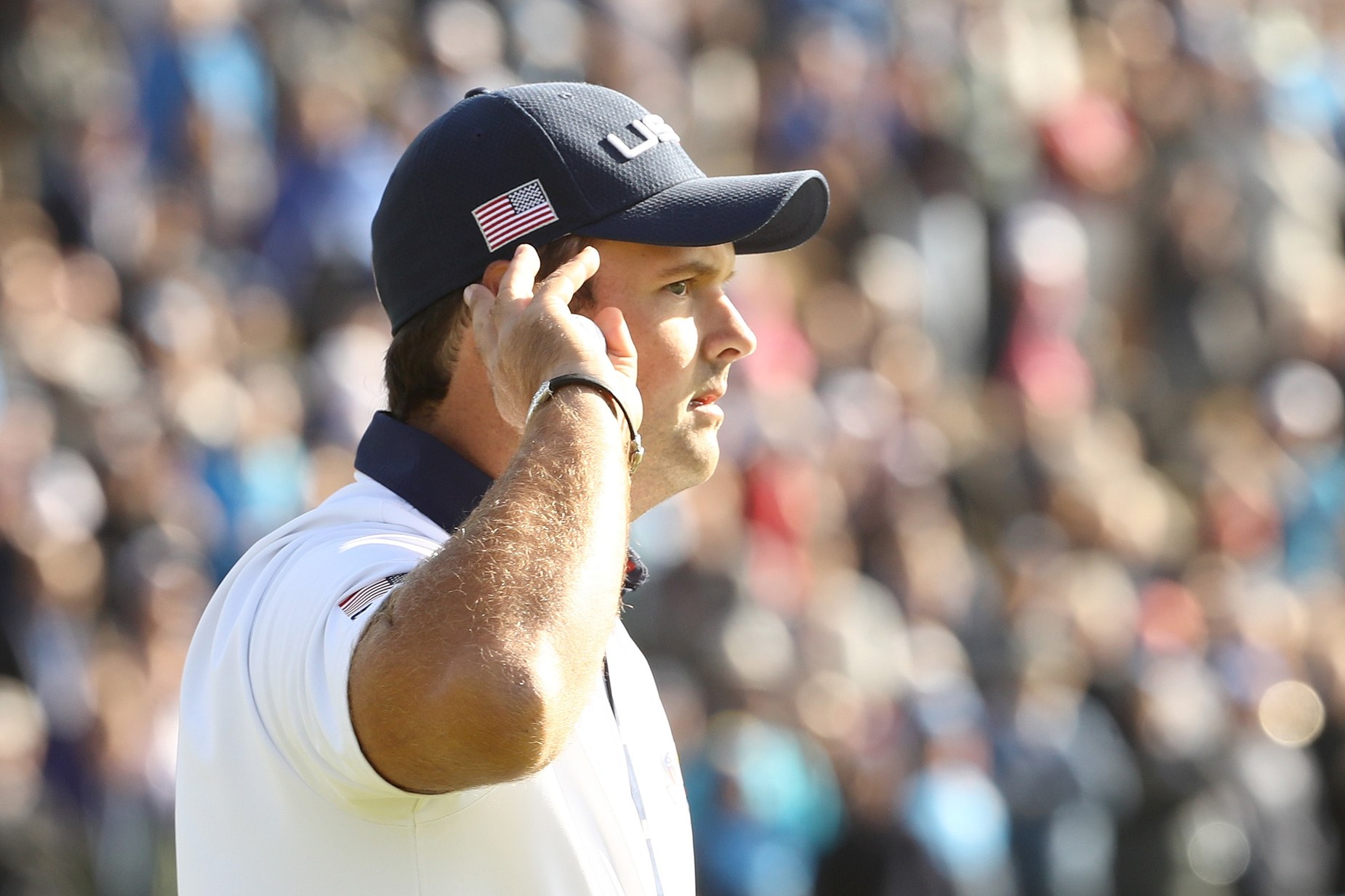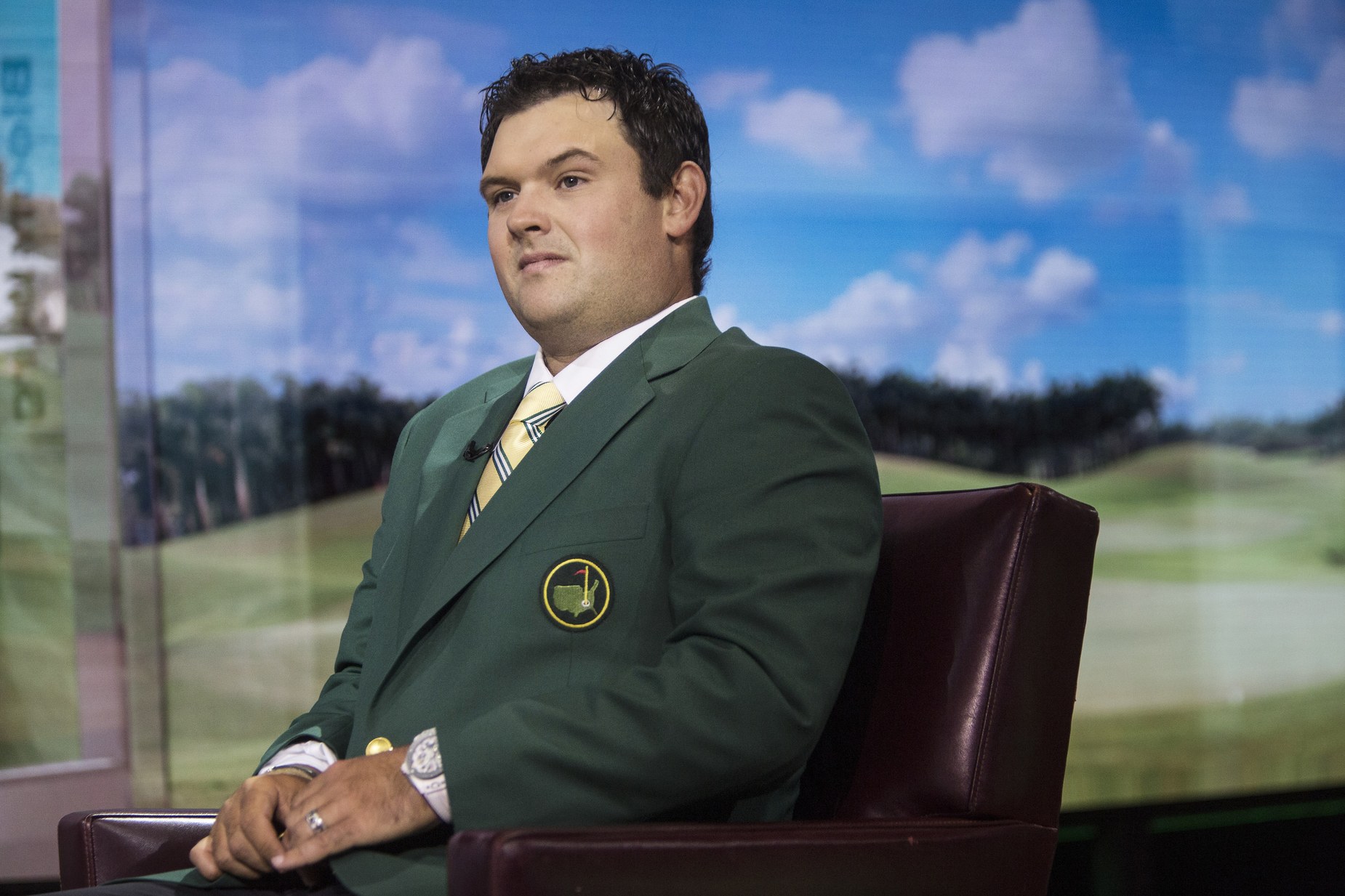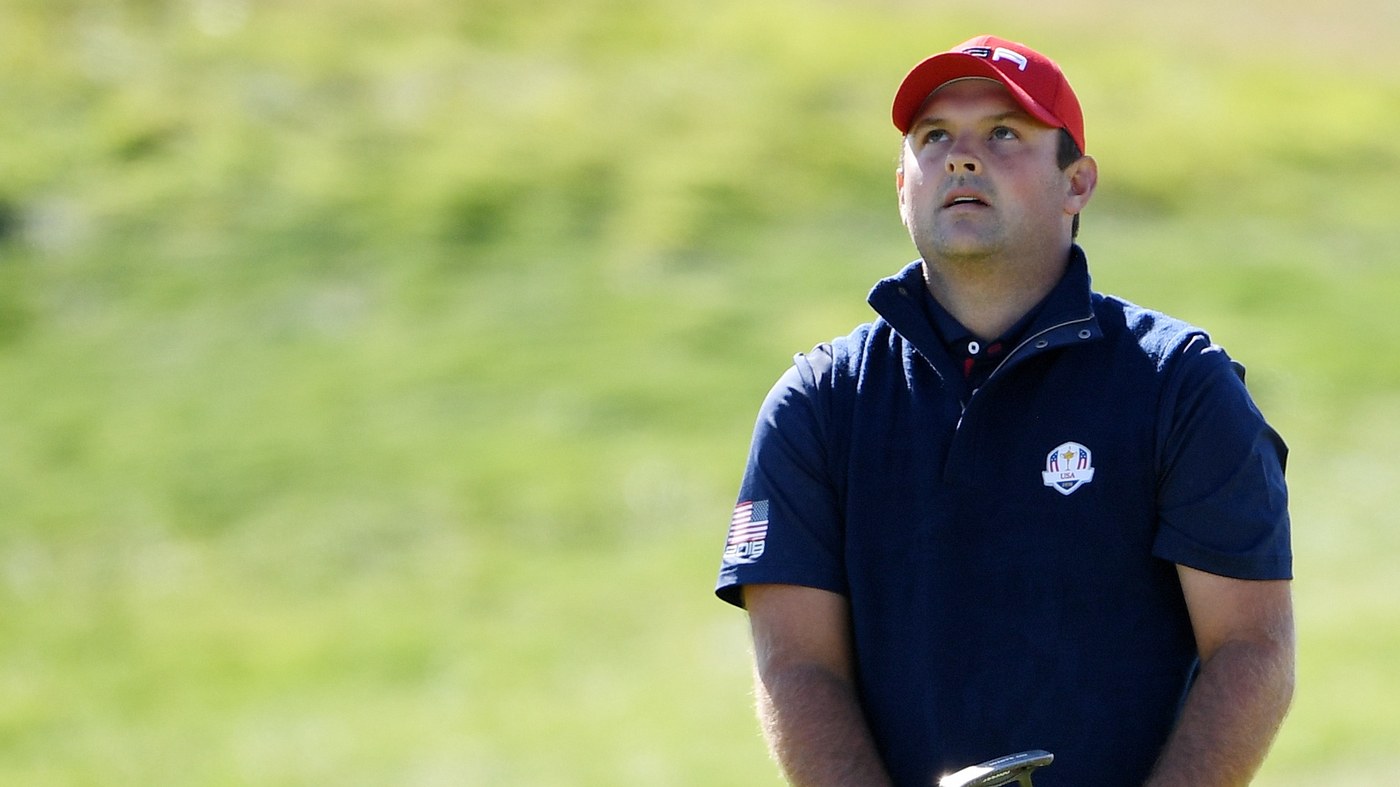By Joel Beall
The roars of Augusta National are famous come Masters Sunday. The sounds shake the body, overpowering and distinct. This year’s tournament was no different. There was a thunderous boom for Rory McIlroy when he hit his second shot to five feet at the par-5 2nd. Jordan Spieth, nine under through 16 holes, might have registered something on the Richter scale had his birdie at the 17th dropped. Cheers lifted when Rickie Fowler converted a tricky seven-footer at the 18th to get one back.
But the most memorable sounds from that Sunday were the ones not heard. Patrick Reed, who played his college ball in Augusta, was surgical and forward in protecting his lead, a performance the moment called for. Not that you could tell from the gallery. Augusta National’s patrons are unfailingly respectful, per Bobby Jones’ long-standing mandate, and greeted Reed with polite applause. Jones never requisitioned praise, however. That is a sentiment evoked, not given. When Reed tapped in his par putt to seal his victory, the response was eerily muted. Jon Rahm, who played in the group ahead, asked a group of writers if Reed had indeed won.
“There wasn’t much noise so I didn’t know,” Rahm said, motioning in the 18th’s direction.
It was not overly complicated. Reed was a man with a complex past and persona deemed cocky and brash. They are attributes common in other sports, but against golf’s gentlemanly ethos, they made Reed an outsider. For his part, Reed brushed these notions aside.
“Honestly I don’t really care what people say on Twitter or what they say if they are cheering for me or not cheering for me,” Reed said at Augusta. “I’m out here to do my job, and that’s to play golf. I feel like if I’m doing it the right way, then that’s all that really matters.”
Hopefully, Reed still holds that mindset. Because the last six months have been evidence of the opposite.
• • •
Shortly after the Americans’ disappointing loss on Sunday at the Ryder Cup, Reed granted a phone interview to the New York Times’ Karen Crouse. In this conversation, Reed broke a cardinal rule in sports: Don’t throw your teammates under the bus.
On the controversial split of he and Jordan Spieth, one of the most successful duos in U.S. Ryder Cup history, during last week’s event at Le Golf National, Reed told Crouse, “The issue’s obviously with Jordan not wanting to play with me.” Regarding Spieth’s diplomatic answer to the same question during a post-even press conference, Reed responded, “I was looking at [Jordan] like I was about to light the room up like Phil in ’14.” Reed added, “Every day, I saw ‘Leave your egos at the door.’ They [the Europeans] do that better than us.”
Spieth wasn’t the only target. Reed was benched for two of the five sessions by captain Jim Furyk, a matter that didn’t sit well with the player who earned the label Captain America through his previous Ryder Cup performances. “For somebody as successful in the Ryder Cup as I am, I don’t think it’s smart to sit me twice,” Reed said. For context, Reed had shot an estimated 85 in Saturday morning four-ball with Tiger Woods.
The quote was damning, incendiary and self-absorbed. But also one that could be written off as a heat-of-the-moment barb. Reed is an emotional, competitive figure, and athletes routinely spout after losses, only to walk it back in the ensuing days. Unfortunately for Reed, this was not an isolated incident.

Jamie Squire
There was an ugly PR dust-up with the PGA Tour during the Dell Technologies Championship last month, Reed airing his grievances about free tickets to a game at Fenway Park. Earlier in the summer, Reed got into a verbal spat with a European Tour camera crew, an altercation caught on tape. Also captured in March was a discussion with a rules official at the Arnold Palmer Invitational in which Reed, unhappy with the decision, claimed Spieth would have received a better ruling.
The reservations seen at Augusta came from a place of wariness and doubt. Conservatism, too. Golf is a game of humility, where pride and sass is perceived as sin. The above issues, particularly the NYT interview, are different. Individually, they warrant skepticism. In the aggregate, they do not paint a pretty picture. Reed had been discussed in unfriendly tones before, but never has he so blatantly helped perpetuate the discussion.
In short, golf has the makings of a true villain. Something it hasn’t had in forever.
• • •
There have been other antagonists, at least purported. Rory Sabbatini, Ian Poulter, Sergio Garcia, Vijay Singh, Robert Allenby, Bubba Watson of recent memory. Colin Montgomerie, too. Fuzzy Zoeller said something that will forever stain his name.
But, while all had their faults, they weren’t villains, not in the true sense. Garcia and Poulter had run-ins with fans and unfortunate comments, but most of the time they were provoked. They were hated for an athlete’s highest honor: Because they terrorized opponents, particularly in America’s relationship with the Ryder Cup. Both have been accused of being aloof, but in reality there’s likely a bit of xenophobia at work. Put Monty in that bucket as well.
Bubba? He’s a different cat. At times, that rears its head in unflattering fashion. He’s also donated millions to various organizations, and tour officials say he always makes himself available for charitable endeavors. He does not warrant inclusion in this arena.
Vijay? There were the rumors of rules issues dating back to his time on the Sunshine Tour and his fight with the PGA Tour over a banned substance gained him detractors. His demeanor would be not described as warm. Singh also didn’t conjure a visceral reaction from fans. He wasn’t beloved, but far from hated.
Sabbatini? Like Reed, the South African was brazen, and verbal fights with Sean O’Hair and Ben Crane were head-shaking moments. Despite some strong play in the mid-2000s, however, he wasn’t relevant enough to muster much energy. Hard to care about a guy with one top-10 in a major.
And that—a worthy adversary—is a villain’s biggest ingredient. They have to stray from the norm, be divisive, irritating, arouse such strong emotions that his opponent is an instant rooting interest. But above all else, there needs to a be a sense of threat and formidability. With that foundation, the rest of these characteristics must come in convergence. Outside the Ryder Cup, that is something the above players lacked on a sustained basis.
As has golf, for that matter. The only real, indisputable villain the sport has had was … Jack Nicklaus. The Golden Bear had the audacity to challenge the thrown of the people’s king, Arnold Palmer, and it took years for crowds to warm up to the chubby kid from Ohio. He was booed, heavily. Fans held signs that said, “HIT IT HERE, JACK” next to bunkers. His success was met with yawns. Yet Nicklaus, while arrogant, wasn’t offensive. His biggest knock was he stood in the way of Arnie’s march. Bad timing, that’s all.
There were other historical men in black—Tommy Bolt, Tom Weiskopf, Scott Hoch—but none with real permanence. Even rumors on Ben Hogan’s cold disposition didn’t come out until later in his life. The guy was thrown a ticker-tape parade in New York City, after all.

Bloomberg
Which brings us back to Reed. He seems to embody all the qualities associated with a nemesis. He has now called out Jordan Spieth, one of the most popular players in the sport, on multiple occasions this year. (It’s worth noting here, regarding Spieth’s “ego,” that Jordan was the only American player to watch Bryson DeChambeau in the final singles match after the Ryder Cup had been decided.) That the two have a backstory of a successful partnership is something out of a comic book.
Reed’s also living up to his “top-five player” proclamation, winning golf’s most prestigious tournament yes but also placing second at the 2017 PGA Championship and nearly winning this year’s U.S. Open. He is only 28, with his advanced stats pointing to further improvement in the years to come. Those hoping Reed would shut up and go away will not get their wish for quite some time.
You could argue, does golf need a villain? Well, the despised likes of the New England Patriots and New York Yankees have made for richer, fuller narratives in their sport. Same goes for athletes like boxer Floyd Mayweather and tennis player Lleyton Hewitt in individual games. “The more successful the villain,” Alfred Hitchcock once said, “the more successful the picture.”
Furthermore, for those who don’t enjoy the buddy-buddy nature of today’s landscape, bemoaning that golfers are too friendly in competition, Reed is the perfect foil. Golf has long sought a rivalry. If it’s fixed in animosity and malice, all the better.
Particularly on the side of the perceived protagonists. For to become a real hero, a villain needs to be vanquished. This year has, to many, ingrained Reed in one of those roles. Imagine next spring at Augusta if Reed and Spieth, or Thomas or McIlroy or Fowler or the like, are locking horns down in Amen Corner. No matter the sounds produced, it would be a scene.









